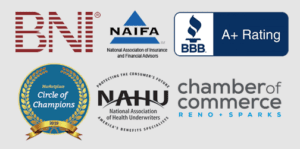Medicare is a crucial part of the American healthcare system, providing essential coverage to millions of seniors across the nation. Understanding Medicare is vital for seniors as it ensures they receive the medical care they need while managing costs effectively. In this blog post, we'll break down the basics of Medicare, including eligibility, enrollment options, and key information that every senior should know.
What is Medicare?
Medicare is a federal health insurance program primarily designed for individuals aged 65 and older. It also provides coverage for certain younger individuals with disabilities. The program helps cover various healthcare services, making it an essential safety net for seniors during their retirement years.
Medicare Parts: A Brief Overview
Medicare consists of several parts, each serving a specific purpose:
Eligibility for Medicare
To be eligible for Medicare, you must meet one of the following criteria:
Enrollment Options for Seniors
Understanding when and how to enroll in Medicare is essential to ensure you have the coverage you need when you need it. Here are some key enrollment periods to be aware of:
Medicare Myths to Debunk
Misconceptions about Medicare can lead to confusion. Let's debunk a couple of common myths:
The Importance of Medigap
Medigap, also known as Medicare Supplement Insurance, is a type of private insurance designed to cover the out-of-pocket costs that Medicare doesn't. It can help you manage deductibles, copayments, and coinsurance, ensuring that your healthcare costs are more predictable and manageable.
Conclusion
Medicare is an invaluable resource for seniors, offering access to necessary healthcare services during their retirement years. Understanding the basics of Medicare, including eligibility, enrollment options, and the role of supplemental insurance like Medigap, is essential for making informed decisions about your healthcare coverage.
If you have questions or need personalized guidance on Medicare, don't hesitate to reach out to a licensed insurance professional. They can help you navigate the complexities of Medicare and ensure you choose the right plan for your unique needs and preferences. By understanding the fundamentals of Medicare, you can enjoy your retirement years with confidence in your healthcare coverage.

